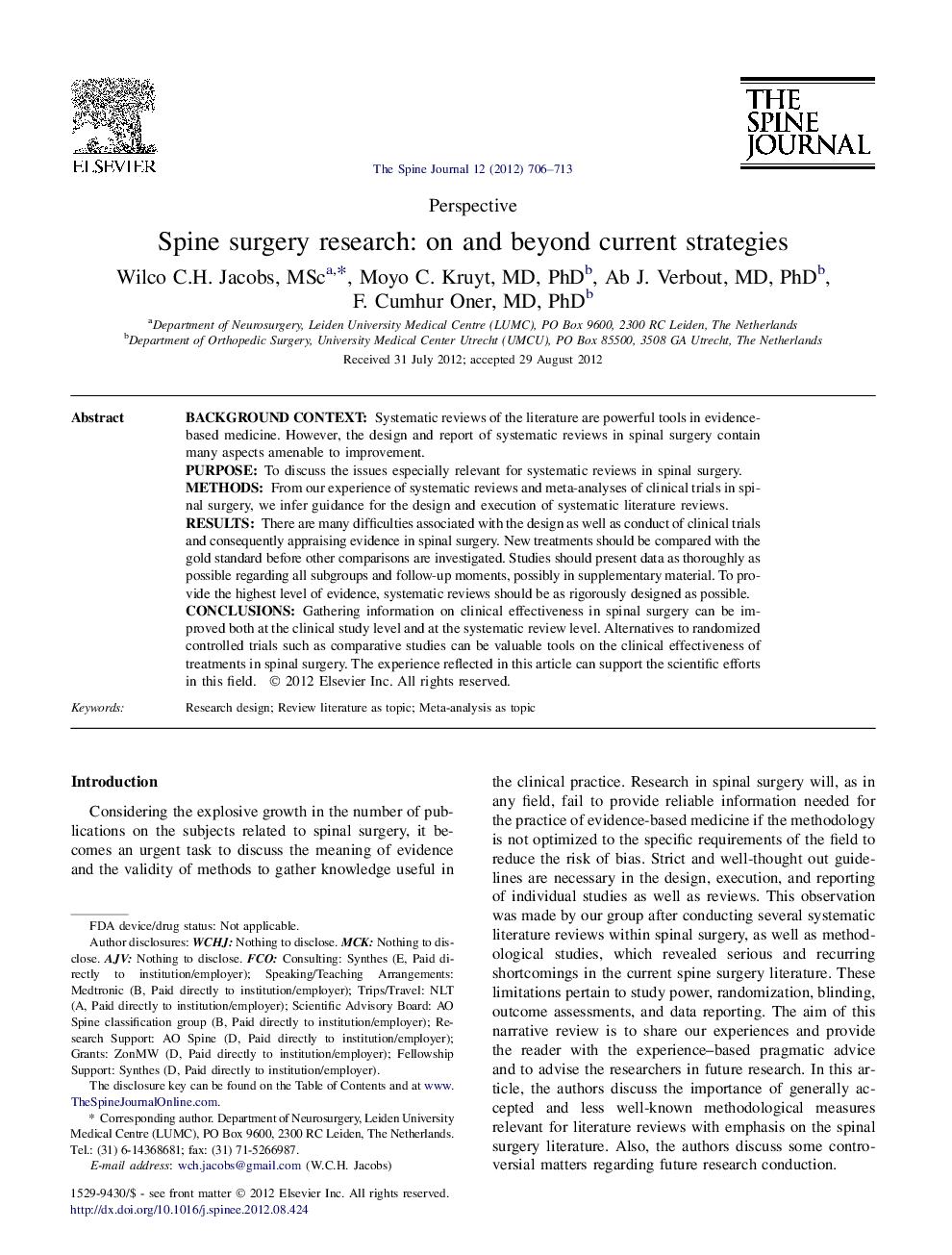| Article ID | Journal | Published Year | Pages | File Type |
|---|---|---|---|---|
| 4097594 | The Spine Journal | 2012 | 8 Pages |
Background contextSystematic reviews of the literature are powerful tools in evidence-based medicine. However, the design and report of systematic reviews in spinal surgery contain many aspects amenable to improvement.PurposeTo discuss the issues especially relevant for systematic reviews in spinal surgery.MethodsFrom our experience of systematic reviews and meta-analyses of clinical trials in spinal surgery, we infer guidance for the design and execution of systematic literature reviews.ResultsThere are many difficulties associated with the design as well as conduct of clinical trials and consequently appraising evidence in spinal surgery. New treatments should be compared with the gold standard before other comparisons are investigated. Studies should present data as thoroughly as possible regarding all subgroups and follow-up moments, possibly in supplementary material. To provide the highest level of evidence, systematic reviews should be as rigorously designed as possible.ConclusionsGathering information on clinical effectiveness in spinal surgery can be improved both at the clinical study level and at the systematic review level. Alternatives to randomized controlled trials such as comparative studies can be valuable tools on the clinical effectiveness of treatments in spinal surgery. The experience reflected in this article can support the scientific efforts in this field.
